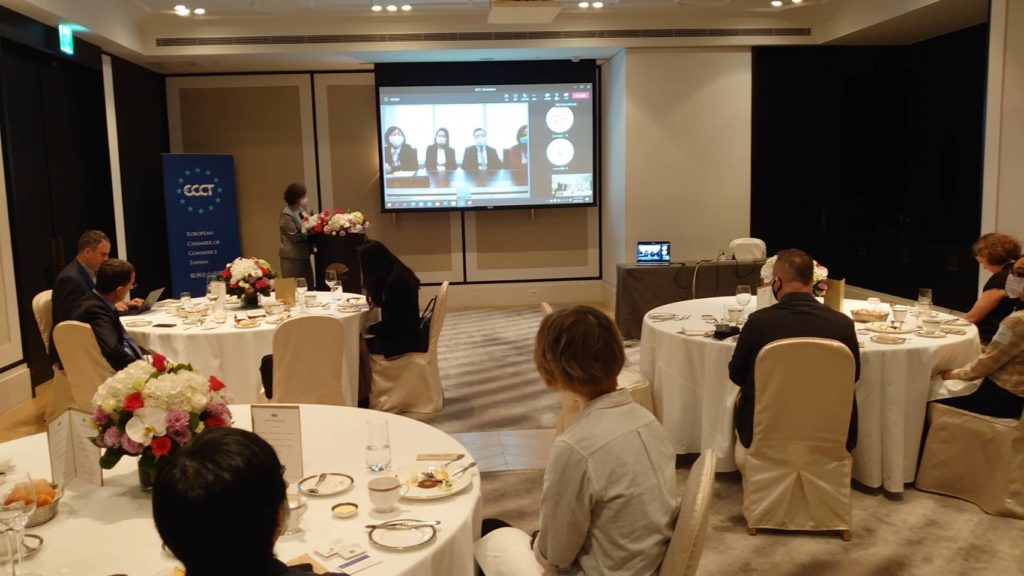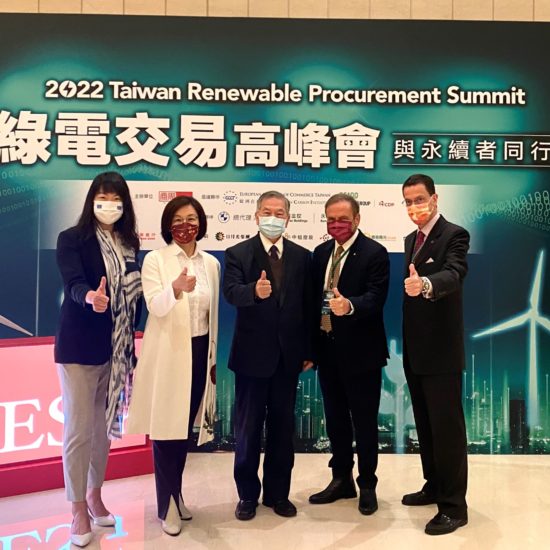Tax incentives for foreign employees

The ECCT's Tax committee hosted a lunch to brief members about tax incentives for foreign employees featuring guest speakers Ting Ying-tai and Ellen Ting, both of whom are partners at KPMG Taiwan.
Ting Ying-tai began by describing in detail the application avenues for foreigners to work in Taiwan. Since 1992, the Employment Services Act has allowed specialised technical workers or managers of foreign companies to apply for work permits while, since the enactment of the Act for the Recruitment and Employment of Foreign Professionals in October 2017, foreign professionals in 8 fields (which was expanded to 10 fields in 2021) have been eligible to apply for either a work permit for foreign special professionals or an Employment Gold Card (EGC). The speaker went on to describe the qualifications and procedures to apply for each of the options.
He noted that from mid May 2021 until early March 2022, employers were required to apply for Special Entry Permits for employees on a project basis for emergency entry visas. Such permits for foreign employees were granted based on the project's economic contribution to Taiwan. However, since 7 March, foreign employees have been able to apply directly for Special Entry Permits through Taiwan's Economic and Cultural Offices, although regulations and requirements may differ depending on the country.
The processing time for work permits is usually 12 days and about 30 days for visas and Alien Resident Certificates (ARC) while EGCs take 30-60 days. The advantage of applying for a work permit for foreign special professionals under the Act for the Recruitment and Employment of Foreign Professionals is that it is valid for five years while the ESG and work permit under the Employment Services Act are both valid for just three years. However, the advantage of the ESG is that individuals may apply for them while the other work permit options require an application by employers.
Ellen Ting proceeded to outline some tax benefits. ESG holders and those with work permits for foreign special professionals are eligible to a 50% tax deduction on the portion of their salaries that exceeds NT$3 million. In addition, specific types of overseas income set under Subparagraph 1, Paragraph 1, Article 12 of the Income Basic Tax Act, may be excluded from the income basic tax. Those with work permits under the Employment Services Act for specialised technical workers or managers do not qualify for this benefit. However, certain expenses paid by Taiwan employers can be excluded from the taxable income of the foreign employees and the Taiwan employer can also claim these expenses (including housing, relocation, car, education, utility and telephone allowances). This benefit also applies to foreign special professionals but not to ESG holders.
She went on to give an example of how the tax benefits work depending on the type of work permit, noting a big difference in tax bills of those who have obtained a work permit for foreign special professionals or an EGC. However, she pointed out that the 50% tax deduction benefit can only be enjoyed by those who stay in Taiwan for 183 days or longer during any given calendar year and that they are only valid for five years (or the duration of the ESG, which is three years). However, the tax preference benefit (expenses paid by Taiwan employers) has no time limit.
Given the variations in benefits depending on work permit status, she recommended that employers make sure that they choose the options that provide the most benefits as well as to make sure that they are complying with tax filing requirements. In this regard, she offered some tips for employers: Keep track on expatriates' overseas travel plans and the duration of residence outside of Taiwan (to ensure that employees are in Taiwan for 183 days in the applicable calendar years); Identify the appropriate type of work permit; Plan ahead for the compensation package to separate those items that may be applicable for tax incentives and review compliance procedures by the end of every taxable year to avoid penalties.
Please download the speakers' slides here: ECCT-tax luncheon-0428.

